Netaji Subhash Chandra Bose
Netaji Subhash Chandra Bose was an important leader of Indian independence movement. This Biography profiles his childhood, life, achievements and death.
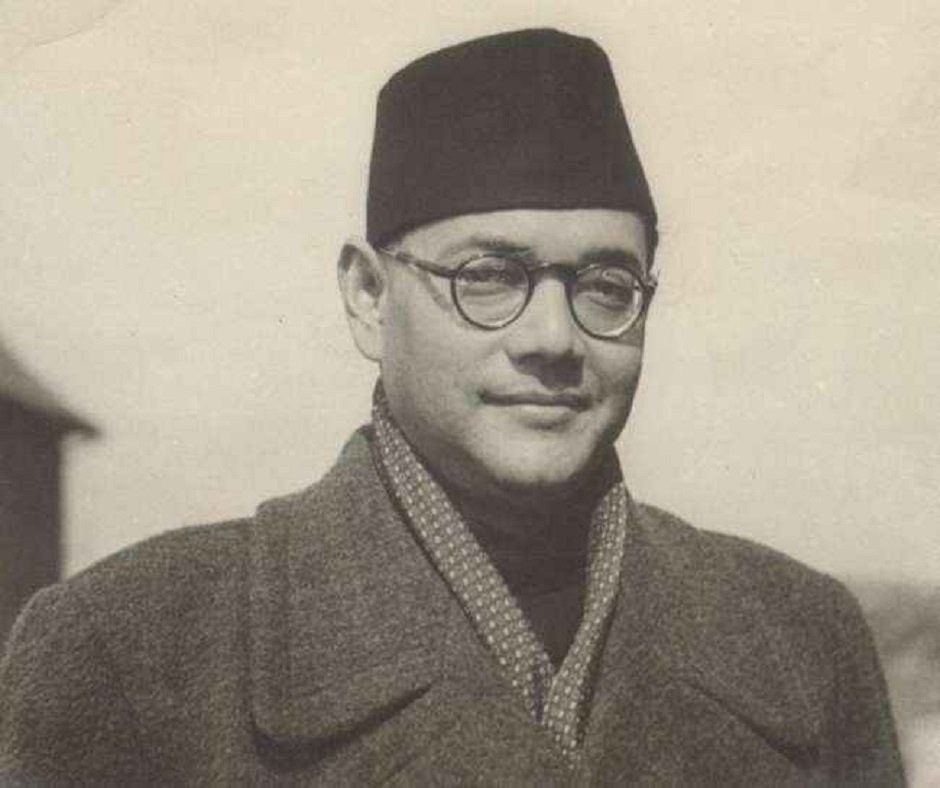
Here's a time line of Subhash Chandra Bose
- Born: January 23, 1897
- Place of Birth: Cuttack, Orissa.
- Parents: Janakinath Bose (Father) and Prabhavati Devi (Mother).
- Spouse: Emily Schenkl.
- Children: Anita Bose Pfaff
-
Education: Ravenshaw Collegiate School,
Cuttack,
Presidency College, Calcutta,
University of Cambridge, England. - Associations: Indian National Congress; Forward Bloc; Indian National Army
- Movements: Indian Freedom Movement
- Political Ideology: Nationalism; Communism; Fascism-inclined;
- Religious Beliefs: Hinduism
- Publications: The Indian Struggle (1920-1942)
- Death: Unknown
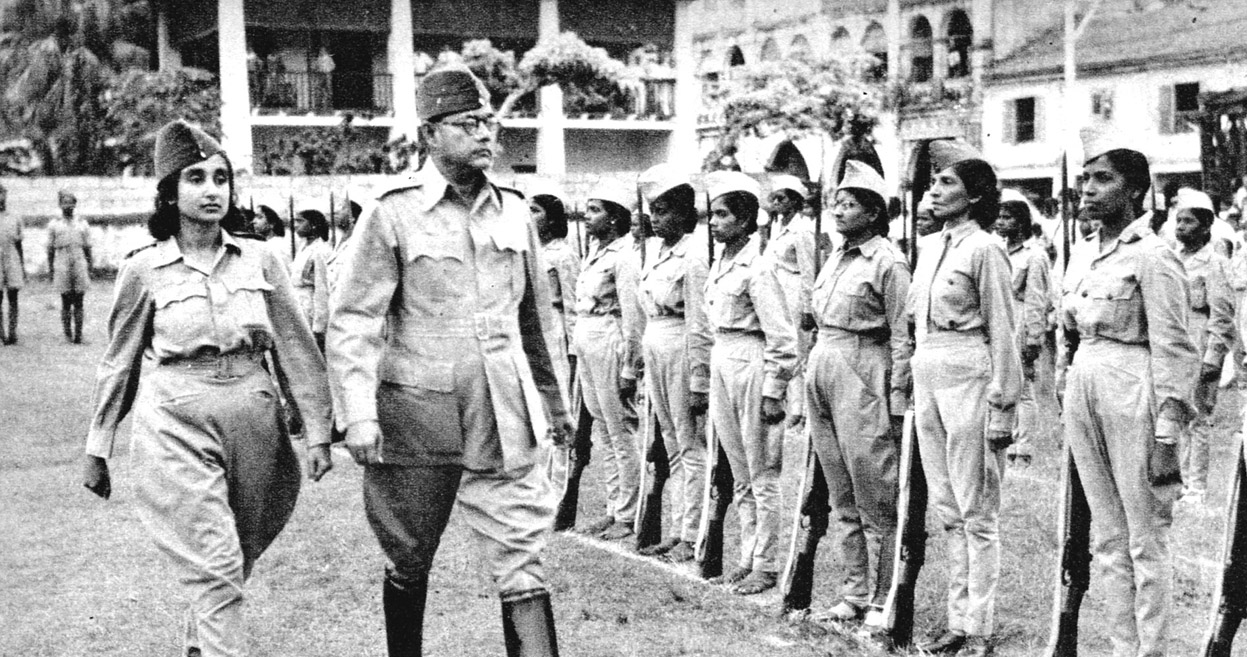
Childhood & Early Life

Political Career
Association with Indian National Congress
Initially, Subhash Chandra Bose worked under the leadership of Chittaranjan Das, an active member of the Congress in Calcutta. It was Chittaranjan Das, who along with Motilal Nehru, left Congress and founded the Swaraj Party in 1922. Bose regarded Chittaranjan Das as his political guru. He himself started the newspaper ‘Swaraj’, edited Das’ newspaper ‘Forward’ and worked as the CEO of Calcutta Municipal Corporation under Das’ stint as Mayor. Subhash Chandra Bose played an important role in enlightening the students, youths and labourers of Calcutta. In his fervent wait to see India as an independent, federal and republic nation, he emerged as a charismatic and firebrand youth icon. He was admired within the congress for his great ability in organization development. He served several stints in prison for his nationalist activities during this time.
Dispute with the Congress
In 1928, during the Guwahati Session of the Congress, a difference of opinion surfaced between the old and new members of the Congress. The young leaders wanted a "complete self-rule and without any compromise’ while the senior leaders were in favour of the "dominion status for India within the British rule".
The differences between moderate Gandhi and aggressive Subhash Chandra Bose swelled to irreconcilable proportions and Bose decided to resign from the party in 1939. He went on to form the Forward Bloc the same year.
Although he voiced his dislike for the British often in his correspondences, he also expressed his admiration for their structured way of life. He met with the leaders of the British Labor Party and political thinkers including Clement Attlee, Harold Laski, J.B.S. Haldane, Arthur Greenwood, G.D.H. Cole, and Sir Stafford Cripps and discussed the possibilities that an independent India might hold.
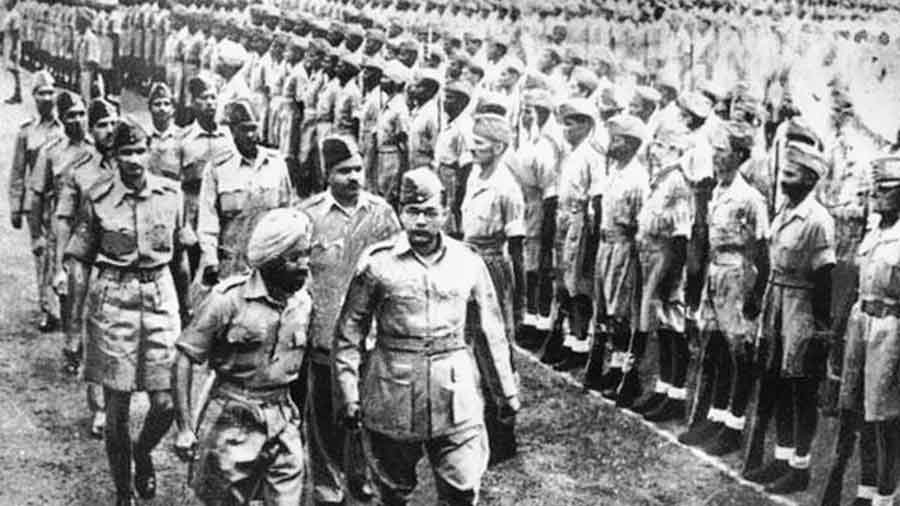
Formation of the Indian National Army
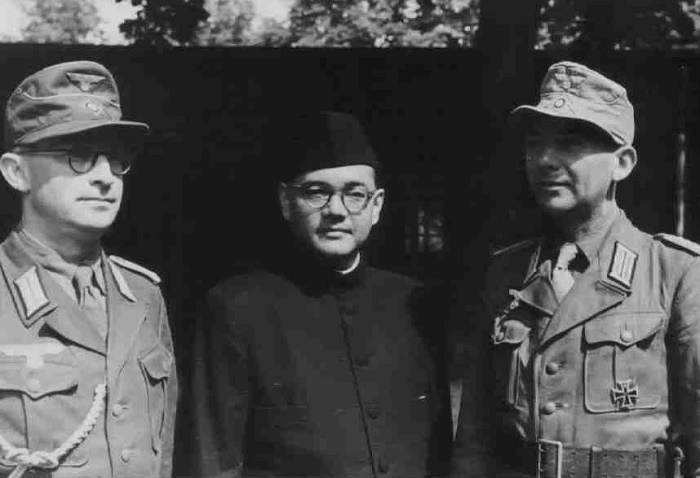
Death
Netaji disappeared mysteriously soon after the retreat. It is said that he went back to Singapore and met Field Marshal Hisaichi Terauchi, head of all military operations in South East Asia who arranged for him a flight to Tokyo. He boarded a Mitsubishi Ki-21 heavy bomber from Saigon Airport on August 17, 1945. The following day the bomber crashed shortly after take-off after a night halt in Taiwan. Witnesses report that Bose sustained intense third degree burns in the process. He succumbed to his injuries on Aug 18, 1945. He was cremated on August 20 in Taihoku Crematorium and his ashes were laid to rest at the Renk?ji Temple of Nichiren Buddhism in Tokyo.
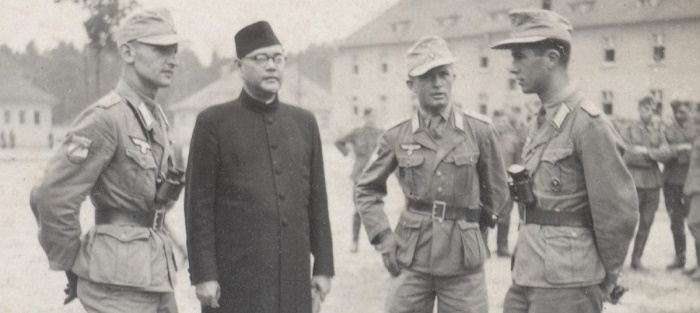
The government of India set up a number of committees to investigate the case. First the Figgess Report in 1946 and then the Shah Nawaz Committee in 1956, concluded that Bose had indeed died in the crash in Taiwan.
Later, the Khosla Commission (1970) concurred with the earlier reports, the reports of Justice Mukherjee Commission (2006) said, "Bose did not die in the plane crash and the ashes at Renkoji temple are not his". However, the findings were rejected by the Government of India.
In 2016, following the declassification of a report handed over by the Japanese government to the Indian Embassy in Tokyo in 1956, titled "Investigation on the cause of death and other matters of the late Subhash Chandra Bose" confirmed the Indian National Hero’s death in Taiwan on August 18, 1945.
Ideology
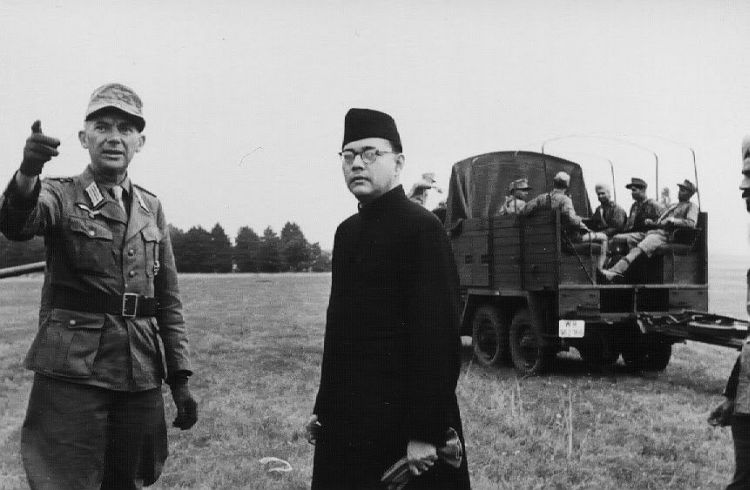
Legacy
Netaji Subhash Chandra Bose has left deep impact on the psyche of his countrymen. His slogan, ‘Jai Hind’ is still used in reverence to the country. The International airport in Kolkata has been named Netaji Subhash Chandra Bose International Airport to commemorate the charismatic leader.
In Popular Media
Many documentaries, TV series and films have been made on the life of netaji. In 2004, revered director Shyam Benegal made a biopic ‘Netaji Subhas Chandra Bose: The Forgotten Hero’ that received immense critical acclaim in India as well as in international film festivals.